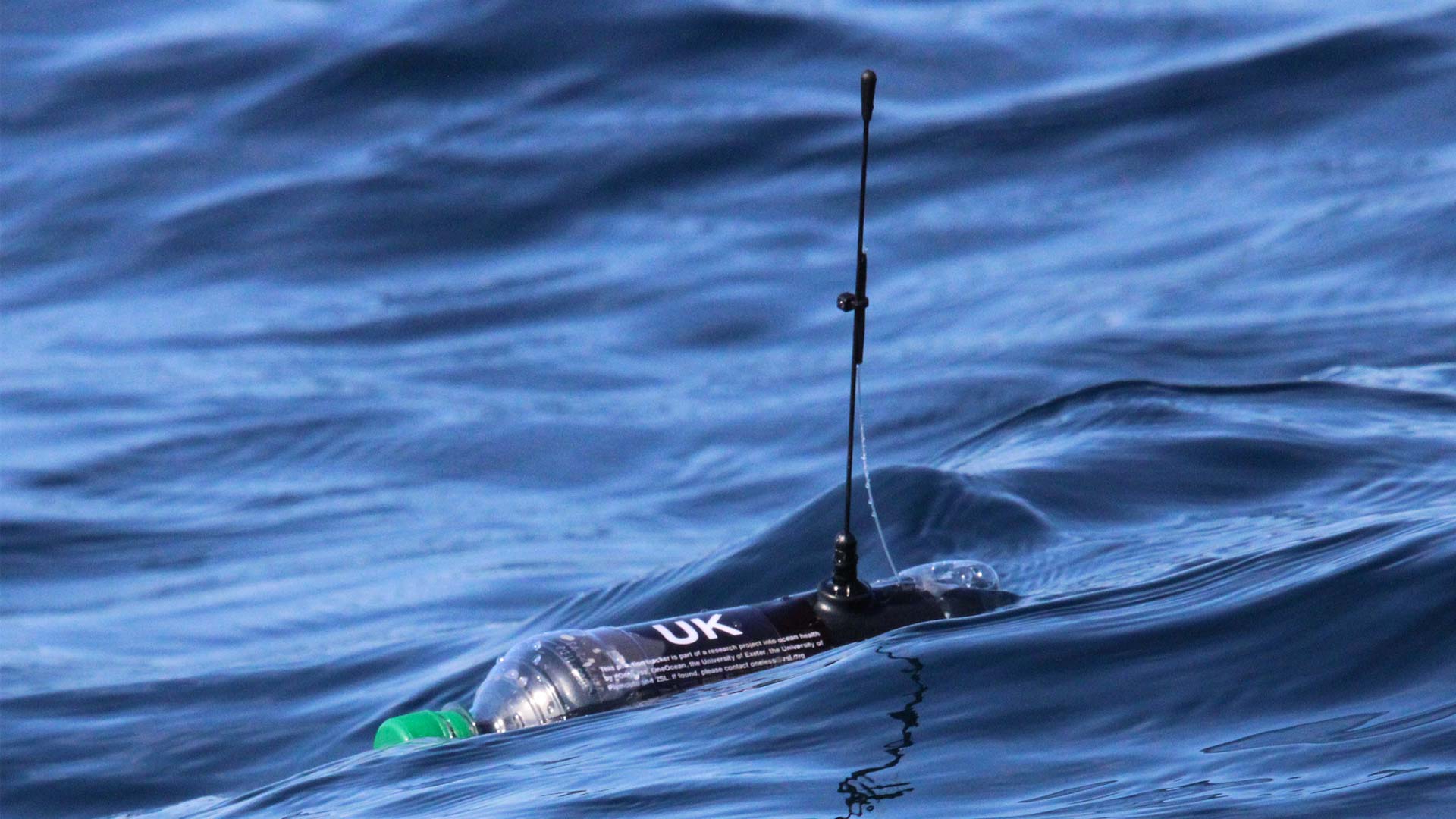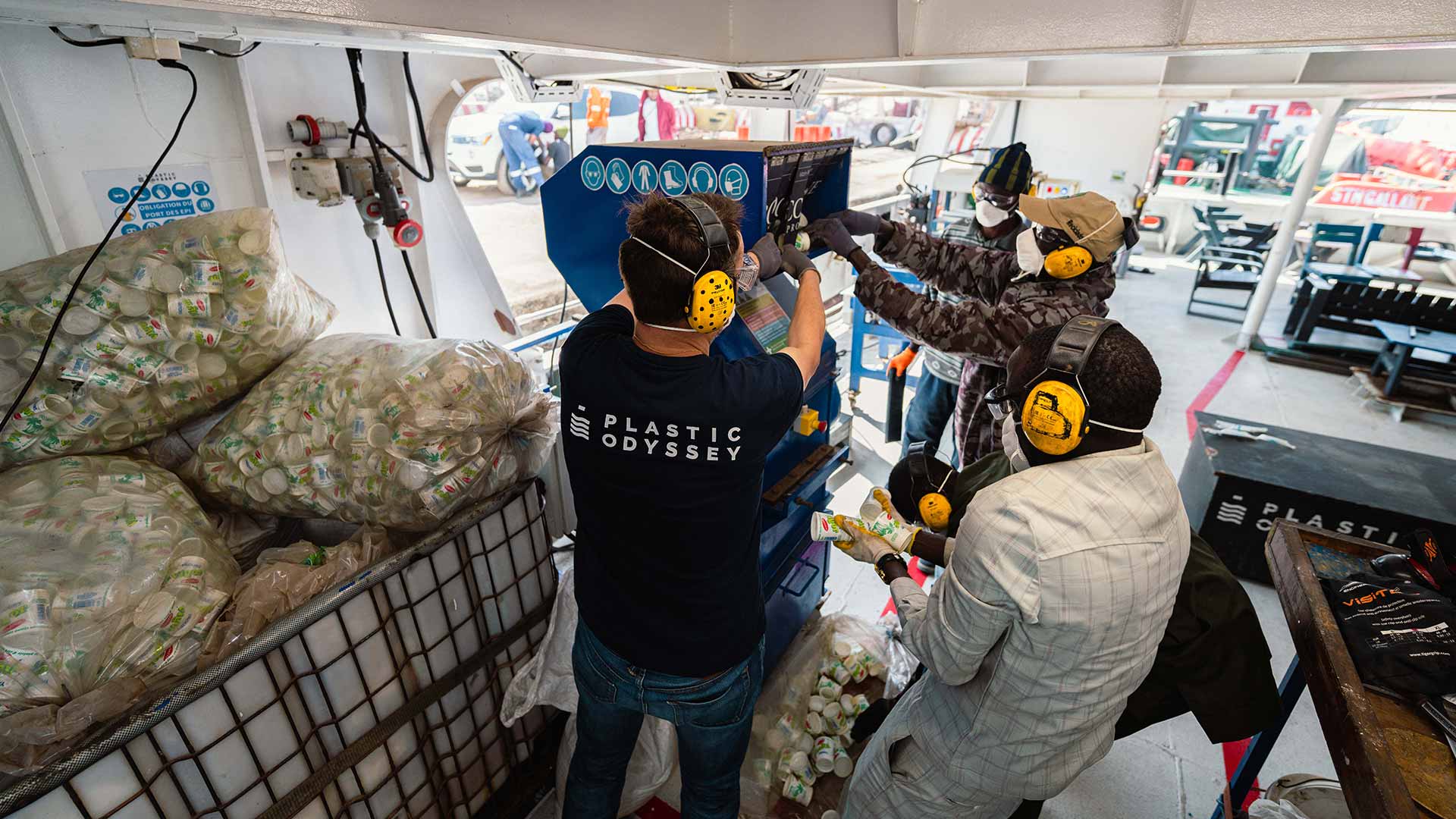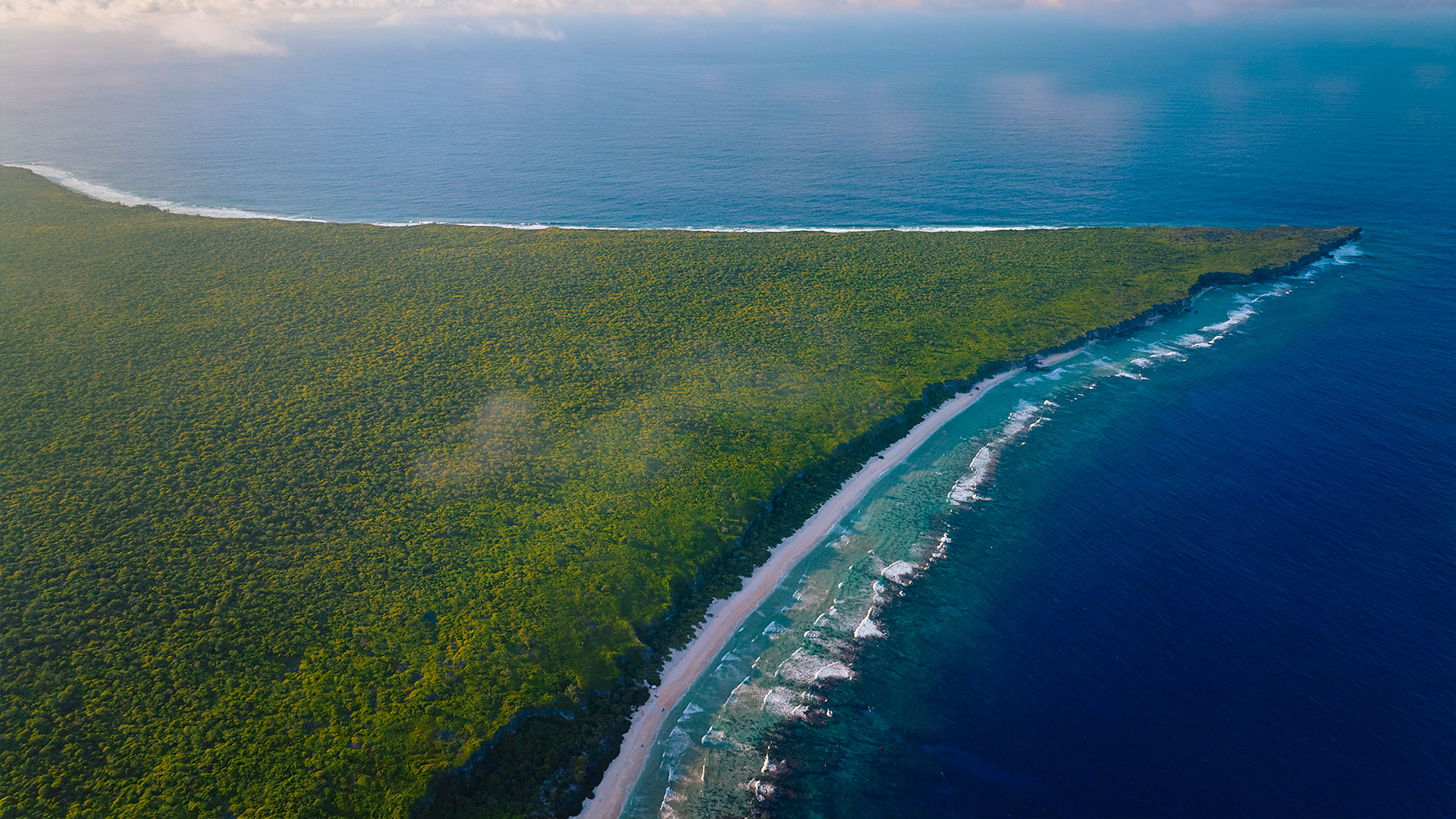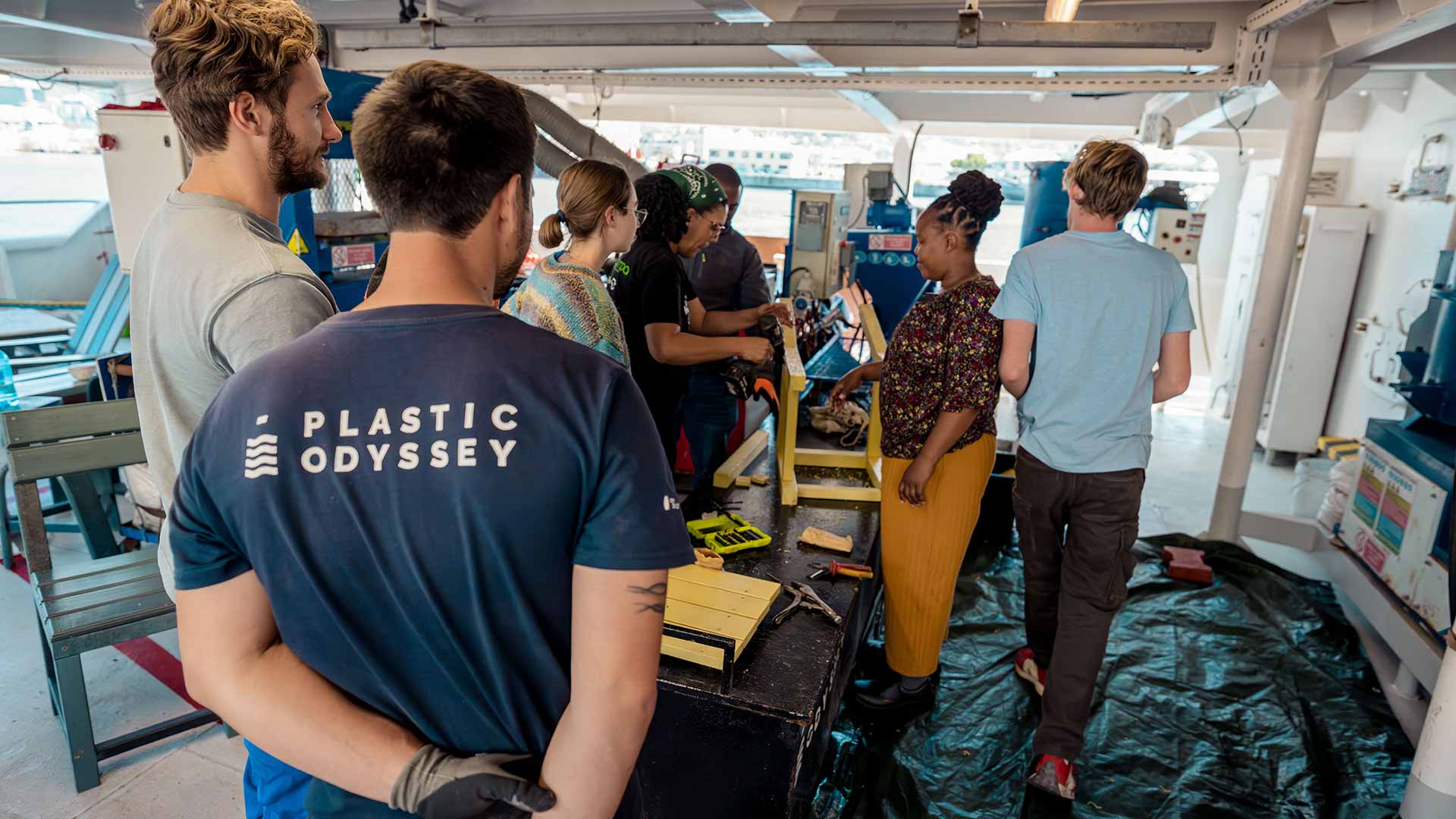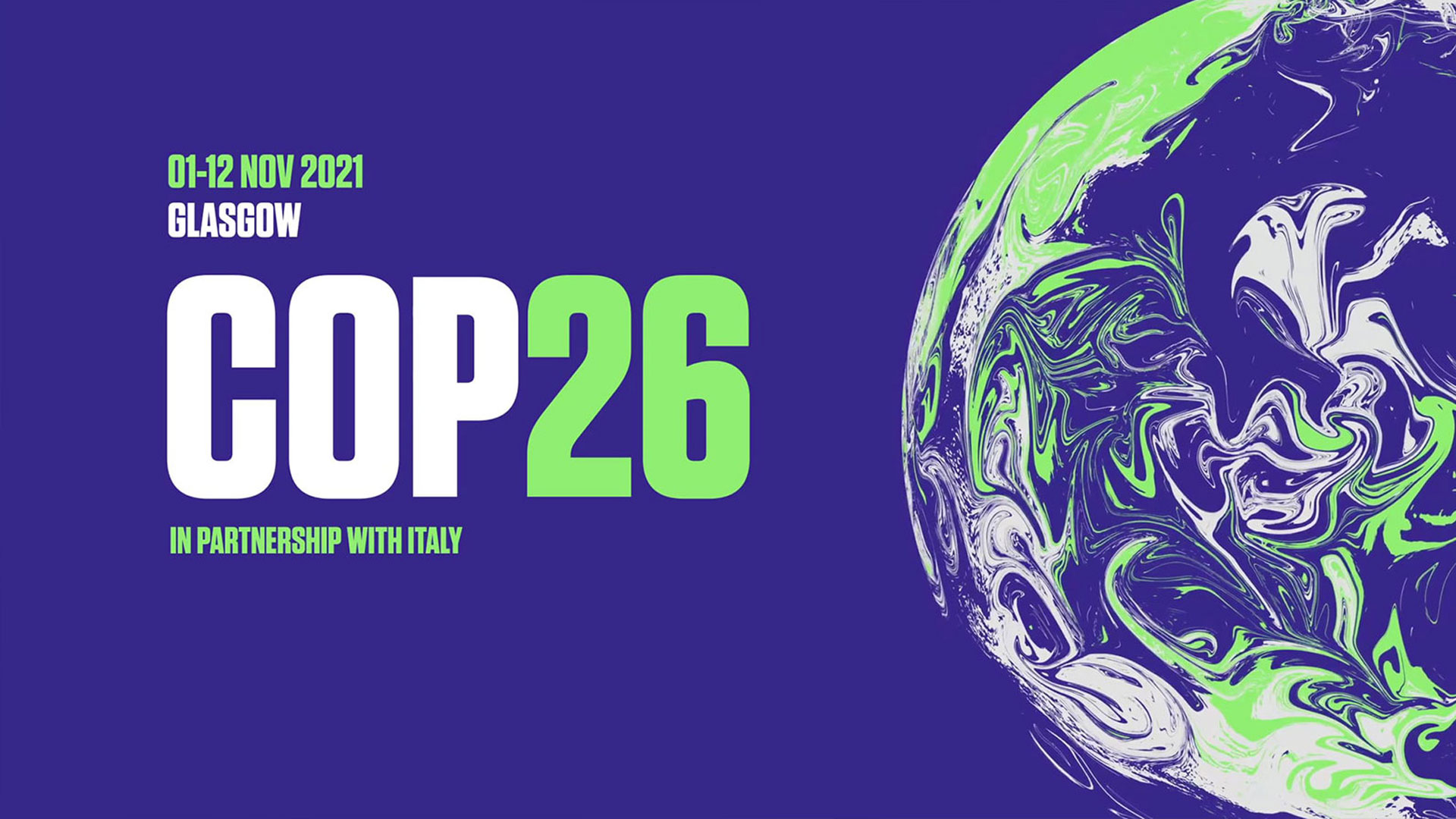
COP26: Our 4 take-aways from Glasgow and recent UN reports
Written by Jill Abelson
The United Nations’ annual COP26 climate summit concluded mid-November in Scotland and a few reports were issued in the few weeks before the COP26, highlighting, once again, the urgency to act. A couple of weeks later, with the entire world having discussed the outcomes of the summit and found the Good, the Bad, and the Ugly in the parties,
we wanted to summarize in 4 key points what we, at Plastic Odyssey, will try to remember until the next COP27.
1. Plastics and climate change are inextricably linked
While the Glasgow talks focused mainly on greenhouse gas emissions, ocean plastic pollution was also in view, as awareness grows around the “vicious cycle” in which ocean plastic pollution exacerbates climate change and vice versa. Just ten days ahead of COP26, the UN Environment Programme (UNEP) released a new report underscoring the effects of ocean plastic on climate change. The assessment: plastic pollution in oceans and other bodies of water could more than double by 2030, and the consequences threaten both sea and shore.
The world’s appetite for plastic is a major driver of climate change, and the two issues are closely linked. Plastics alone account for an estimated 15 percent of the world’s carbon budget, equivalent to approximately 1.7 gigatons of CO2. Under business as usual, by 2050 that number is expected to nearly quadruple.
Another report released in the U.S. in the run-up to COP26 makes a stunning comparison: the plastic sector’s emissions are equivalent to 116 coal-fired power plants last year. All together, climate pollution from plastics could outpace coal in the U.S. by 2030.
These and other studies we are tracking only increase our motivation to help solve the ocean pollution crisis and work toward a better future.
Finally, UNEP’s report also brings attention to the world’s low rate of recycling: currently, less than 10% of plastics are ultimately recycled on a global scale. As we have written and spoken about, this figure hides the big differences between recycling in developed countries, with larger investments in recycling infrastructure (and often higher recycling rates) and the rates in the developing world, where communities lack the infrastructure necessary to manage plastic waste.
We have to close this gap. Starting in a few countries, this is our aim.
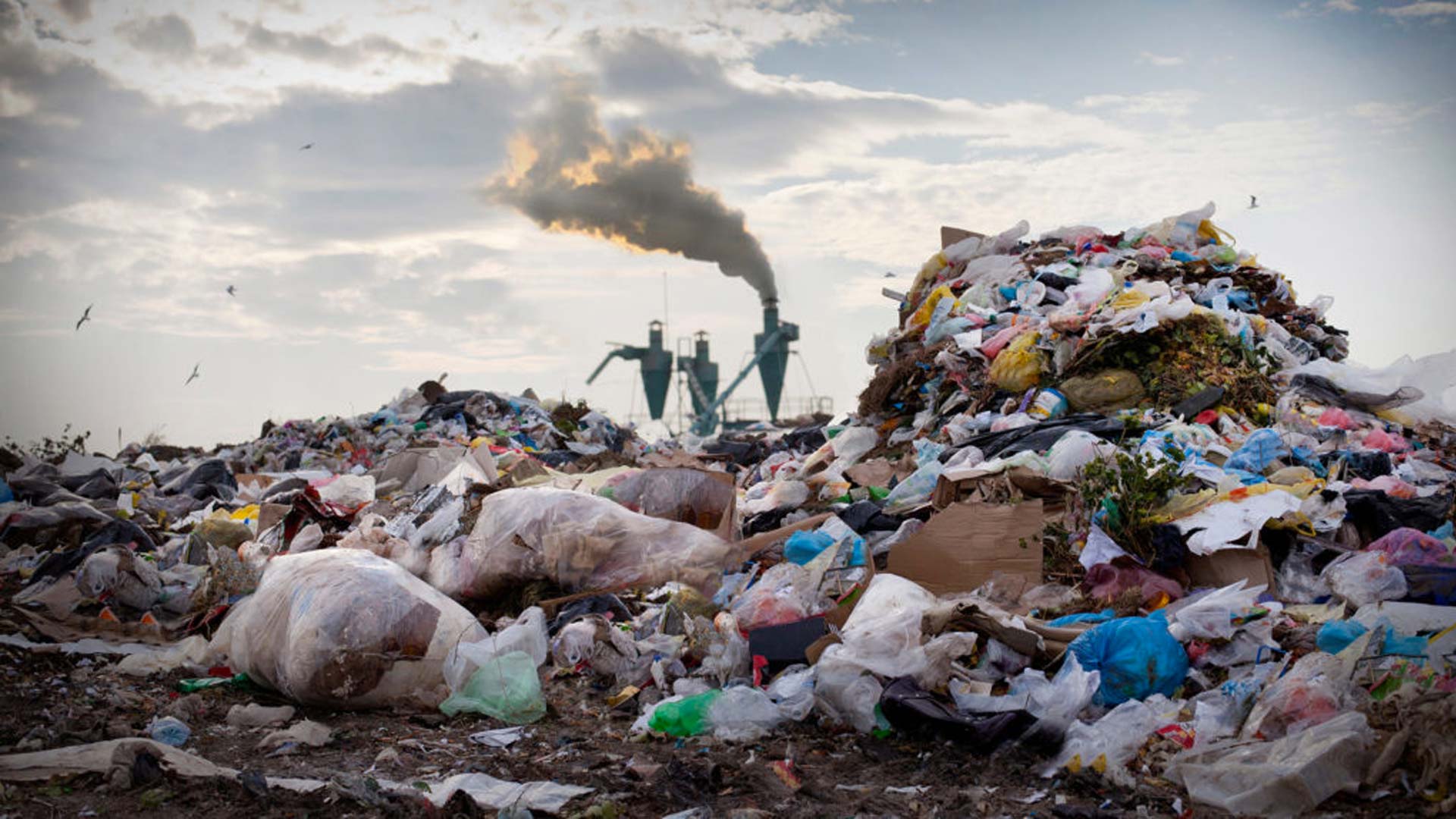
2. Leaders from affected nations speak out
The leaders of countries most affected by the climate crisis made their voices heard at the COP26 summit.
The opening speech by Barbados’ Prime Minister Mia Mottley went viral, as she urged the delegates to work harder for concrete and decisive action. Nations especially affected by ocean plastic pollution were no exception. Walter Roban, deputy premier of Bermuda, warned that irresponsible waste management practices in other countries were leading to major plastic pollution problems for the island nation. “Plastic washes up on our beautiful beaches all the time and it’s not plastic that is disposed of in Bermuda, but elsewhere,” Roban said. “We hope the US and other large countries aggressively address the issue of disposal of single-use plastics to solve what is a global ocean problem that we see every day in Bermuda.”
…
3. Exciting new research initiatives
Several new initiatives were announced in the context of COP26, to help scientists — and us — better understand the plastic waste crisis.
A joint project between three English universities deployed plastic pollution tracking devices into the ocean off the shores of Scotland, where the conference took place.
The devices, shaped like plastic bottles, will travel through the ocean just as discarded single-use drink bottles do, while transmitting information on their voyage. The University of Portsmouth also announced the creation of a Global Plastics Policy Centre during COP26, to act as a “one-stop shop of good advice around plastic policy.” The centre will evaluate different policy approaches to the plastic pollution crisis, scoring how well they accomplish their goals.
4. The world is watching
NGOs and activists made their voices heard, with Glasgow seeing the city’s largest protests since the Iraq War – including protests against the presence of major plastics producers at the COP26 conference. The attention reflects a growing sense of urgency and a desire for accountability.
In February 2022, the United Nations Environment Assembly (UNEA) will establish an intergovernmental negotiating committee, whose task is to begin developing a global plastics treaty agreement. The treaty, if enacted, has the potential to reduce virgin plastic production and consumption, enact circularity goals for plastic, and set strict pollution prevention targets for plastic waste.
The activist response to COP26 reflects a strong faith in globally-binding agreements, and a sign that efforts to address and solve plastic pollution will be closely watched, too. We’re following the lead-up to the plastics treaty process with great interest, and feel optimistic that the world continues to move toward collective action.
Latest News
Senegal: Back in Dakar After Three Years Around the World
Discover the plastic waste recycling entrepreneurs who participated in the training program aboard the ship in Dakar, Senegal....
Why Clean Up the Places No One Lives? Plastic Odyssey’s New Mission with UNESCO
Logistically challenging, ecologically sensitive, rarely visited by humans and covered in plastic. Plastic Odyssey is committing to cleaning up some o...
South Africa: a well-established local plastic waste recycling ecosystem
Discover the plastic waste recycling entrepreneurs who participated in the training program aboard the ship in Cape Town, South Africa....

